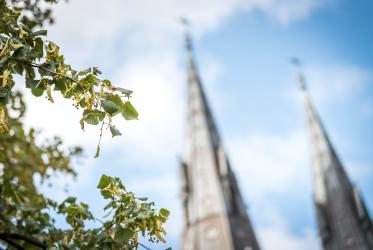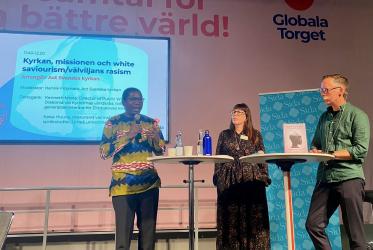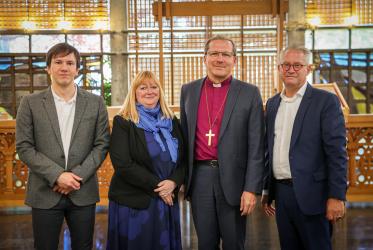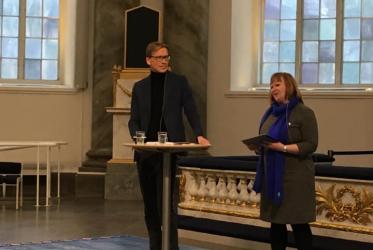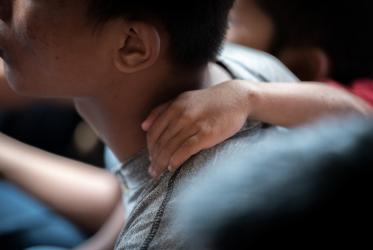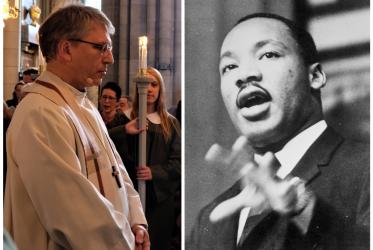Displaying 1 - 20 of 25
15 February 2024
WCC hosts visitors from Finland, Germany, and Sweden
29 September 2023
Uppsala 1968: tal como predijo la canción, los tiempos estaban cambiando
19 September 2022
Uppsala 1968: The times, they were a’changing
06 September 2022
Church of Sweden publicly apologises for abuse of Sámi people
26 November 2021
Ecumenism is a sense of belonging
08 February 2019
WCC Executive Committee envisions future for one ecumenical movement
08 November 2018
WCC encourages churches’ work with migrants, refugees
07 November 2018
Looking back and ahead
31 October 2018
Mirar al pasado y hacia delante
31 October 2018
The year that shook the world: 1968 in retrospect
18 October 2018
Trying to do good for the world
18 December 2017
Intentando hacer el bien para el mundo
18 December 2017
